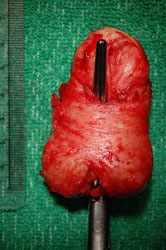
Subscribe & Follow
Early detection vital to curing male cancers

Commenting ahead of Men's Health Month in June, Dr Dominique Stott, executive at PPS, the specialist financial services provider for graduate professionals, says that while there are no measures to prevent the onset of prostate cancer, it is vital for all men over the age of 45 years to be regularly tested to ensure that treatment can be initiated and the disease cured.
"Prostate cancer generally only becomes relevant after the age of 45 years in black males and after the age of 50 years in other races. For any men who fall into this age bracket there is a simple blood test (PSA) as well as a rectal examination which can easily be performed to look for prostate cancer."
Check with your medical aid regarding benefits offered for cancer
While most medical aid schemes should cover all cancers comprehensively, according to prescribed minimum benefit (PMB) legislation, Dr Stott says consumers should consult their medical aid scheme to find out what benefits they offer for cancer. "It is also advisable for men to have a dread disease policy in place, which will pay a benefit should cancer develop. This ensures that they have adequate funds to cover the cost of treatment, as well as additional lifestyle changes.
"Once a cancer has developed it is too late to think of taking out a life insurance policy as loadings, exclusions or declines may be implemented. Without a disability or income protection policy, income may also be compromised as treatment such as chemotherapy and radiation may require extensive time off work," says Dr Stott.
Graham Anderson, Principal Officer at Profmed Medical Scheme, says that testicular cancer largely affects younger men and is most commonly found in white males as opposed to other races. "Testicular cancer is the most common form of cancer in men between the ages of 15 and 35, so it is essential for younger men to carry out monthly self examinations to check for any abnormal lumps."
Don't ignore that lump... Ever!
"One of the biggest problems we face with testicular cancer is that too often young men ignore a lump because of the embarrassment of being examined. However testicular cancer can be easily cured and if it is caught in the early stages, then the cure is 100%."
Dr Stott says that while women are often more open about discussing a disease such as breast cancer, men tend to be too embarrassed to discuss testicular and prostate cancer with the result that they are at risk of not having something checked out. "It is essential that we use Men's Health Month proactively and effectively to highlight the risks that men face to their health and encourage them to speak openly about such issues."













